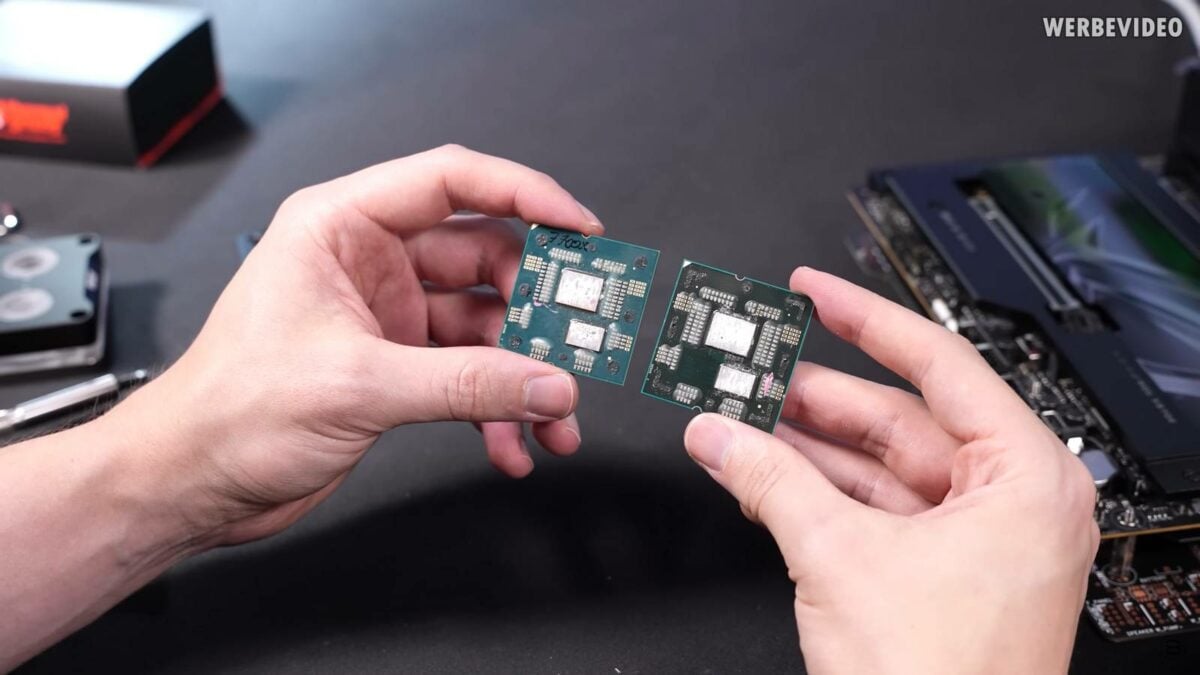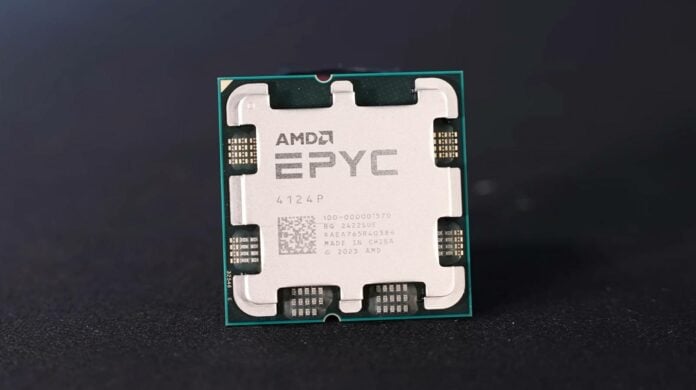YouTuber der8auer has put an AMD Epyc 4124P processor to the test, showing the capabilities of this quad-core chip. Built with reliability in mind, this CPU is perfect for small servers and host machines.
The Epyc 4004 is a Zen 4-based series aimed at small businesses and dedicated hosting machines. From the outside, you could easily mistake it for a Ryzen 7000 or 9000 CPU since it fits inside the AM5 consumer socket. It can even handle DDR5-6000 memory, like its Ryzen brethren.
If you were expecting a massive SP5 socket, you wouldn’t be alone. Epyc 4004, or 4124P to be exact, is an AM5-compatible CPU packing four Zen 4 cores and eight threads clocked at 3.8GHz base and 5.1GHz boost. The chip also carries 16MB of L3 cache and targets a 65W TDP out of the box.
Epyc 4124P is the entry point of the 4004 Series, which includes 6, 8, 12, and 16-core models. There are even 3D V-Cache-infused variants featuring up to 128MB of L3 cache and 5.7GHz boost frequency. So, no 24-core models, let alone 96 cores. In other words, aside from the four-core model, the Epyc 4004 lineup is fairly similar to Ryzen 7000 Series. One may even wonder if these are simply rebranded Ryzen 7000 chips since the latter also supports ECC memory.

As you can guess, performance scales linearly when the application manages to correctly load each core, otherwise things can vary a lot. For example, in Cinebench R23 the six-core Ryzen 7600X was 50% faster than Epyc 4124P’s four cores. On the opposite side, Remnant 2 saw little difference between these CPUs.
Interestingly enough, Epyc 4124P had an unlocked multiplier, prompting der8auer to give overclocking a shot. The result is 5.65GHz (500MHz higher) at 1.45V, which netted an 11% boost in Cinebench and 10% in Remnant 2. That said, this comes at a higher power cost.
Needless to say, at €160, Epyc 4124P doesn’t make sense for gamers since 7500F retails for €148, houses two extra cores, and rounds off with 16MB more L3 cache.
What is special about these Epyc 4004 chips, however, is their advanced security features required by professionals. Unlike their desktop counterparts, these take data protection more seriously, focusing on blocking sophisticated contemporary attacks. This makes them perfect for less demanding tasks that don’t require a lot of performance, saving both on the total cost of ownership and power consumption.


